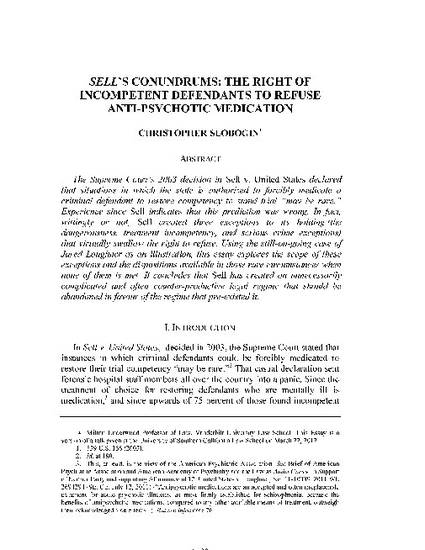
- Sell v. United States,
- right to refuse,
- mental health
The Supreme Court's 2003 decision in Sell v. United States declared that situations in which the state is authorized to forcibly medicate a criminal defendant to restore competency to stand trial "may be rare." Experience since Sell indicates that this prediction was wrong. In fact, wittingly or not, Sell created three exceptions to its holding (the dangerousness, treatment incompetency, and serious crime exceptions) that virtually swallow the right to refuse. Using the still-on-going case of Jared Loughner as an illustration, this essay explores the scope of these exceptions and the dispositions available in those rare circumstances when none of them is met. It concludes that Sell has created an unnecessarily complicated and often counter-productive legal regime that should be abandoned in favour of the regime that pre-existed it.
Available at: http://works.bepress.com/christopher-slobogin/53/
